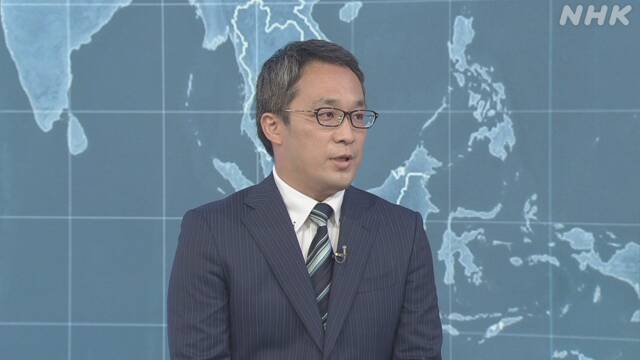A quad summit was held, which is the framework of the four countries of Japan, the United States, Australia and India.
In a joint statement, with China in mind, it strongly opposes any intimidating and one-sided actions that raise tensions.
They also agreed to aim for more than $ 50 billion in support and investment in the infrastructure sector over the next five years.
This is a commentary by Masashi Ota of the Political Department and Kohei Tsuji of the Washington Bureau about the perception of Japan and the United States.
Q1 What are the achievements of the quad for Japan?
(Reporter Ota)
As Russia's military invasion continues, the Japanese government is becoming more cautious that the movement to change the status quo may spread to Asia.
Under such circumstances, I think it is a certain achievement to share the recognition that "one-sided changes in the status quo by force should not be allowed in any region" with Russia and China in mind, and to show a united stance.
Regarding the situation in Ukraine, India is a traditional friend of Russia, so the focus was on the degree of agreement within the framework of the four countries.
Eventually, the joint statement was in the form of seeking a peaceful solution that would not resort to attempts to change the status quo, without naming Russia, and adjustments were made to find a point that India could accept. It seems to be a thing.
Q2 How did the United States perceive it in terms of cooperation with India?
(Reporter Tsuji)
While the temperature difference has been pointed out over the response to China and Russia, I think that the United States was able to keep pace with the minimum.
In a meeting with India's Prime Minister Joe Biden, "There are many things we can do together. I promise to make our friendship with India the closest on earth," calling for cooperation between the two countries. I did.
As the situation is about to be changed by force over Ukraine, the United States is intensifying the sense of crisis that the turmoil in the international order should not spread to the Indo-Pacific region.
At this summit, the strong ties of quads that share values such as democracy and the rule of law can be sent a clear message to China, which is positioned as the "biggest competitor." It seems that they are evaluating it.
Q3 How will the United States be involved in the Indo-Pacific region in the future?
(Reporter Tsuji)
President Biden said at today's summit that "America is a nation in the Indo-Pacific region. We share the same region and are deeply involved", showing a strong determination to be involved.
It can be said that the quad, which holds a summit meeting every year and is going to be regularized, and the new economic partnership IPEF, which was launched yesterday, are all the embodiment of that determination.
In addition, the United States is supporting the deployment of nuclear submarines in Australia under the framework called AUKUS, which was newly created last year together with the United Kingdom and Australia.
The United States states that allies and friends are great diplomatic assets.
We intend to compete with China by establishing and collaborating with such countries not only in terms of security but also in advanced technologies such as 5G, cyber, and supply chains.
Q4 How will Japan respond to changes in the international situation?
(Reporter Ota)
The Government of Japan will continue to promote cooperation within the framework of the quad.
Although there are differences in their positions, the aim is to increase the presence of the four countries and reduce China's influence by accumulating concrete cooperation in a wide range of fields such as the economy.
In addition, the G7 Summit to be held in Germany next month is expected to be a place where Prime Minister Kishida and other G7 leaders will come together to reaffirm their strict response to Russia.
Japan will chair the G7 next year, and Prime Minister Kishida told President Biden yesterday that he intends to hold the G7 Summit in Hiroshima.
As Prime Minister Kishida, as the only G7 member in Asia, I would like to emphasize the importance of basic values such as freedom and the rule of law, and contribute to the peace and stability of the international community.

